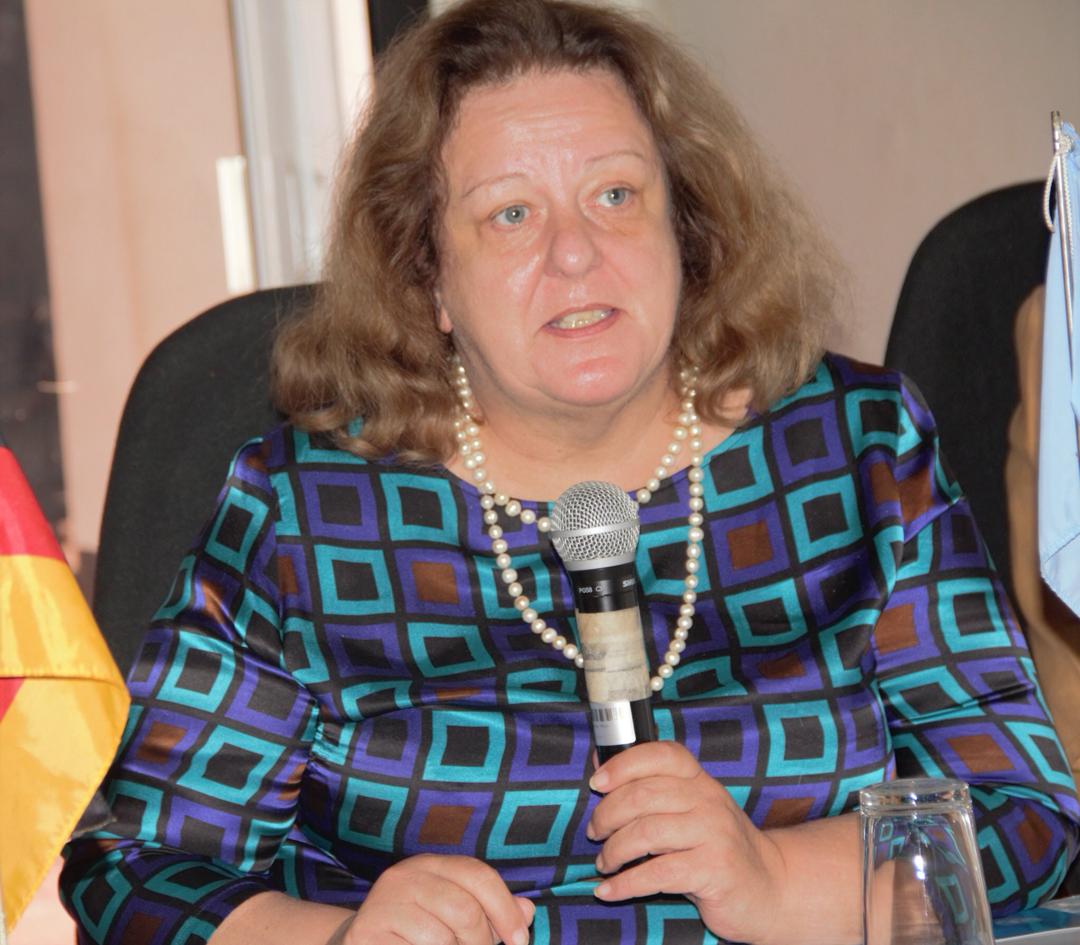|
Getting your Trinity Audio player ready…
|
The Government of Zimbabwe and the UN System have rolled out a series of national and provincial dialogues on Food Systems as part of the preparation for the global Food Systems Summit, which will take place at the UN General Assembly in September in New York.
In his keynote address on the Third Stage National Food Systems Dialogue today, Dr. Anxious Masuka, the Minister of Lands, Agriculture, Fisheries, Water, And Rural Resettlement said the food systems dialogues have revealed some pertinent cross-cutting issues that require a multi-sectoral response.
“To attain sustainability, our food system needs to deliver food security and nutrition for all our people. The economic, social, and environmental issues must be considered. The smallholder farming system is largely a low-input low-output system and subsistence-oriented. This farming system relatively produces fewer greenhouse emissions and pollutants to the environment. It incorporates biodiversity as farmers grow a mix of crops on the same pieces of land. Because most of the producers are the consumers of the food, the supply chains are shorter, reducing the carbon footprint of transportation,” Dr. Masuka said.
In its statement, the United Nations Country Team in Zimbabwe said it is committed to working towards accelerating progress on the Sustainable Development Goals.
“There is growing consensus that transforming our food systems is the single most important strategy that we must speed up for realization of the 2030 Agenda.
“We recognize that sustainable transformation of our food systems is the collective responsibility of the government, private sector, consumers, development partners and all individuals. It is an all-of-Government and all-of-society effort to ensure equitable access to, and utilisation of nutritious food,” the UN Team said.
They called for homegrown solutions that encompass investments in agricultural value chains, social protection, nutrition, education, health, and climate resilience.
The Dialogues convened under the leadership of the Ministry of Lands, Agriculture, Water, Climate, and Rural Resettlement are promoting this multi-dimensional reflection.
The United Nations is committed to supporting a broad partnership to achieve a sustainable pathway for transformation of Zimbabwe’s food systems, guided by the National Development Strategy 1 (2020 – 2025) and Zimbabwe’s commitment to the Sustainable Development Goals, Agenda 2030 and Agenda 2063.
Through the UN Sustainable Development Cooperation Framework 2022-2026, the collective efforts of the UN and partners seek to contribute to the transformation of food systems across the various spectrums. This includes promoting nature positive agricultural production; adopting climate change mitigation and adaptation measures; making food systems more inclusive, equitable and responsive to threats and crises.
“But it also means investing in economic transformation and opportunities for young people and women in rural and urban economies; investing in robust and supportive health and educational services as well as supporting Government to invest in social protection initiatives that enhance people’s livelihoods and increase prosperity, especially for children, young people and those most vulnerable.
“The UN encourages the Government and all stakeholders to work together and ensure broad multi-sectoral collaboration, engaging in particular, disadvantaged groups such as women and youth, towards stable, equitable, climate and environmentally smart food systems that promote access to and utilization of nutritious food for all Zimbabweans.”
The flexible and inclusive approach towards dialogues has enabled more than 230 stakeholders to lend their voices in shaping Zimbabwe’s position for the Food Systems Summit.
As a precursor to the Global High-Level Food Systems Summit that will take place in September on the margins of the General Assembly, a pre-Summit was held in Rome in July. The pre-summit brought together diverse actors from around the world to leverage the power of food systems to achieve the SDGs. The deliberations at the pre-summit affirmed that the global summit will play a central role in advancing the Decade of Action to deliver the SDGs.
The Summit is taking place at a time where the world continues to grapple with the COVID-19 pandemic and amid increasing climate crises. Notwithstanding tremendous efforts being made by multi-stakeholders across the world, including here in Zimbabwe, the pandemic and growing climate disasters have had a devastating impact on lives and livelihoods.
Sadly, the pandemic and climate change have contributed to a reversal of the SDGs’ progress, and delayed action on many of the major transitions required to meet the 2030 Agenda for Sustainable Development.
COVID-19 and climate change have triggered monumental global challenges but also provide a once-in-a-lifetime and unique opportunity to “build forward better.”
In her remarks at today’s dialogue, Ms Maria Ribeiro, the UN Resident Coordinator for Zimbabwe said convening these dialogues has been one way of exploring opportunities to overcome the challenges of ending hunger and poverty while protecting the planet.
“Given the universal nature of the 2030 Agenda, sustainable food systems can drive progress across all of the SDGs. Sustainable food systems are key for responsible both production and consumption needed to achieve ecological balance, zero hunger, and nutrition for all. Sustainable food systems are also an important contributor to inclusive development. Let’s remember that at the centre of our food systems are the smallholder farmers, indigenous people, youth and women who must be equipped to produce the right food while securing the future of our planet.
“I would also like to underscore how critical it is to co-create the future of food by actively engaging the youth. In this regard, I am happy to note that youths in Zimbabwe contributed to the solutions that will be presented here today. Young people had an opportunity to participate in the dialogue through the UNICEF U-report poll. Nearly three thousand young people responded to the poll and more than sixty adolescents aged 12 – 19 years participated in a virtual food systems dialogue,” Ms. Ribeiro added.
